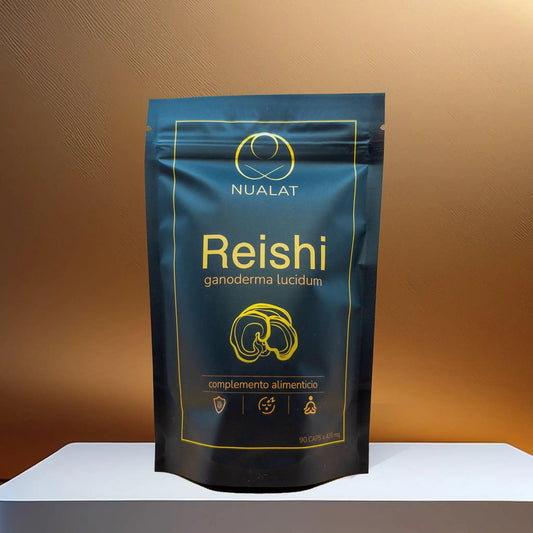
Lion's Mane Benefits: Can This Mushroom Improve Your Memory and Cognitive Ability?
Share
Lion's Mane (Hericium erinaceus) has gained popularity thanks to its promising benefits for memory, concentration, and overall cognitive function. Traditionally recognized in Asian medicine as a brain tonic, this medicinal mushroom has sparked significant interest in modern science to confirm and explore its neuroprotective and neuroregenerative properties.
What is Lion's Mane and why is it so special?
Lion's Mane is a fungus that grows primarily on the trunks of deciduous trees. Its distinctive white mane-like appearance is not only visually striking but also indicative of its richness in bioactive compounds, especially erinacines and hericenones, which have significant effects on the brain.
Key Scientific Study: Lion's Mane and Memory
A pivotal clinical study published by Mori et al. (2009) in the prestigious journal Phytotherapy Research examined the effects of Lion's Mane extract on older adults with mild cognitive impairment, a condition that often precedes neurodegenerative diseases such as Alzheimer's. This clinical study was double-blind and placebo-controlled, providing strong evidence of the mushroom's cognitive benefits.
For 16 weeks, participants were divided into two groups: one receiving Lion's Mane supplements and the other a placebo. The study results revealed:
Significant improvements in memory tests and other cognitive skills were seen in participants who received Lion's Mane extract.
Upon discontinuation of the extract, the cognitive improvements disappeared, suggesting that the cognitive benefits are closely linked to regular and continuous consumption of this mushroom.
How does Lion's Mane work on the body?
Lion's Mane contains specific active compounds, primarily erinacines and hericenones, which cross the blood-brain barrier and exert direct effects on the brain. These compounds act primarily through neurotrophic mechanisms:
- By stimulating the production of Nerve Growth Factor (NGF) and Brain-Derived Neurotrophic Factor (BDNF). NGF is essential for the growth, maintenance, and survival of neurons, particularly cholinergic neurons, which are involved in memory and learning processes. BDNF, on the other hand, is critical for neurogenesis and synaptic plasticity, processes fundamental to neuronal adaptation and regeneration. Increased production of these proteins directly contributes to improved cognitive abilities, promotes neuronal regeneration, and protects against age-related cognitive decline and neurodegenerative diseases.
- Promoting neurogenesis, or the formation of new nerve cells, particularly in brain areas such as the hippocampus, which is crucial for memory and learning.
- Reducing brain inflammation and preventing oxidative damage thanks to its antioxidant properties.
These mechanisms explain why Lion's Mane not only improves memory, but also offers protection against cognitive decline caused by aging or neurodegenerative diseases.
Other Benefits of Lion's Mane
In addition to its direct benefits on memory, Lion's Mane is also known for:
- Improve digestive function, contributing to a healthy gut microbiome.
- Reduce symptoms of anxiety and depression, improving overall mood.
- Boost the immune system, strengthening the body's natural defenses.
- Improve sleep quality, which is crucial for optimal cognitive function.
How to consume Lion's Mane for cognitive benefits?
To get the most out of the benefits of Lion's Mane, it is essential to choose high-quality products:
- Concentrated extract from the fruiting body of the fungus, avoiding products that only contain mycelium or mixtures with grains.
- Recommended doses range from 500 to 1500 mg daily, depending on the concentration of the extract and personal goals.
- Take the supplement regularly, as its effects are cumulative and require consistency.
Conclusion
Lion's Mane offers exceptional promise as a natural supplement to improve memory, protect the brain, and prevent cognitive decline. Solid scientific studies, such as the one conducted by Mori et al. (2009), confirm these benefits and underscore the importance of regular consumption to maintain the effects. As always, it is advisable to consult a healthcare professional before starting any supplementation.
Reference:
Mori, K., Inatomi, S., Ouchi, K., Azumi, Y., & Tuchida, T. (2009). Improving Effects of the Mushroom Yamabushitake (Hericium erinaceus) on Mild Cognitive Impairment: A Double-blind Placebo-controlled Clinical Trial. Phytotherapy Research, 23(3), 367–372.






